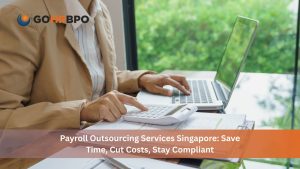Singapore, a vibrant city-state renowned for its economic prowess and efficient governance, has a robust payroll system that adheres to strict statutory requirements. For businesses operating in Singapore, understanding the intricacies of statutory reporting is crucial to ensure compliance and avoid penalties. This blog post will delve into the essential aspects of Singapore payroll, focusing on statutory reporting.
Singapore Payroll: The Importance of Statutory Reporting in Singapore
Statutory reporting in Singapore is a fundamental obligation for all employers. It involves submitting specific information to government agencies, such as the Central Provident Fund (CPF) Board, Inland Revenue Authority of Singapore (IRAS), and Ministry of Manpower (MOM). Accurate and timely reporting is essential for several reasons:
- Compliance: Adherence to statutory reporting requirements ensures that businesses are operating within the legal framework, avoiding penalties and legal repercussions.
- Employee Benefits: Statutory reporting is directly linked to employees’ benefits, including CPF contributions, insurance coverage, and paid leave entitlements.
- Government Data: The data collected through statutory reporting is used by the government to analyze the labor market, formulate policies, and track economic indicators.
Singapore Payroll: Key Statutory Requirements
- Central Provident Fund (CPF) Contributions:
- Employers are required to contribute a portion of their employees’ salaries to the CPF, a mandatory retirement savings scheme.
- The contribution rate varies based on the employee’s age and salary.
- Employers must submit monthly CPF contributions to the CPF Board.
- Income Tax:
- Employers are responsible for deducting income tax from their employees’ salaries based on the IRAS’s tax tables.
- The deducted taxes must be remitted to the IRAS on a monthly or quarterly basis, depending on the business’s turnover.
- Employers may also need to file annual corporate income tax returns.
- Foreign Worker Levy:
- Businesses employing foreign workers are subject to a foreign worker levy, which is a fee imposed by the MOM.
- The levy amount varies depending on the worker’s nationality, occupation, and industry.
- Employers must pay the levy on a monthly basis.
- Work Injury Compensation:
- Employers are required to provide work injury compensation to employees who suffer injuries or disabilities arising from their employment.
- The compensation may include medical expenses, loss of income, and rehabilitation costs.
- Employers must maintain work injury insurance or self-insure to cover these liabilities.
- Employee Benefits:
- Singapore law mandates certain employee benefits, such as annual leave, sick leave, and maternity leave.
- Employers must comply with these requirements and accurately record and report employee leave entitlements.
Singapore Payroll: Best Practices for Statutory Reporting in Singapore
- Maintain Accurate Records: Keep detailed records of employee information, salaries, deductions, and benefits to ensure accurate reporting.
- Use Payroll Service Software: Consider using payroll services software to automate calculations, generate reports, and streamline the reporting process.
- Stay Updated: Stay informed about changes in statutory requirements and regulations to ensure compliance.
- Seek Professional Advice: If you are unsure about statutory reporting obligations or encounter challenges, consult with a payroll professional or tax advisor.
Must Read: Effortless Payroll Software Singapore | Pay Stubs For Small Businesses
By understanding and adhering to Singapore’s statutory reporting requirements, businesses can ensure compliance, protect their employees’ rights, and contribute to the country’s economic growth.






